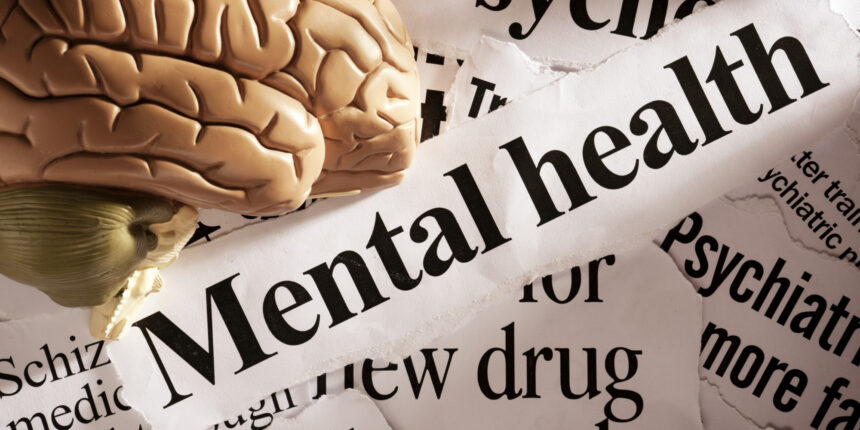As the global population ages, mental health issues in older adults have come to the forefront of public health concerns. Understanding the most common mental health problems faced by older adults is crucial for promoting well-being and improving quality of life in this growing demographic. Let’s delve into the most prevalent mental health challenges and explore ways to address them.
1. Depression
Prevalence and Symptoms: Depression is one of the most common mental health problems in older adults. Symptoms can include persistent sadness, loss of interest in activities once enjoyed, changes in appetite and sleep patterns, fatigue, and difficulty concentrating. In older adults, depression often coexists with other medical conditions, which can complicate diagnosis and treatment.
Risk Factors:
- Chronic illness and pain
- Loss of loved ones
- Social isolation
- Financial stress
- Physical limitations
Management: Effective management may involve a combination of medication, psychotherapy, and lifestyle changes such as increased physical activity, social engagement, and healthy eating. Support from family and caregivers is also crucial.
2. Anxiety Disorders
Prevalence and Symptoms: Anxiety disorders, including generalized anxiety disorder, panic disorder, and phobias, are also common among older adults. Symptoms include excessive worry, restlessness, fatigue, difficulty concentrating, muscle tension, and sleep disturbances.
Risk Factors:
- Traumatic events
- Health concerns
- Cognitive decline
- Medication side effects
Management: Treatment often includes cognitive-behavioral therapy (CBT), medications such as SSRIs, and stress management techniques like mindfulness and relaxation exercises. Encouraging regular social interaction and physical activity can also help reduce anxiety.
3. Cognitive Disorders (Dementia and Mild Cognitive Impairment)
Prevalence and Symptoms: Cognitive disorders, particularly dementia (including Alzheimer’s disease), and mild cognitive impairment (MCI) are significant concerns for older adults. Symptoms can range from mild memory loss and confusion to severe cognitive decline affecting daily functioning and independence.
Risk Factors:
- Age
- Family history
- Cardiovascular health issues
- Lifestyle factors (e.g., diet, exercise)
Management: While there is no cure for dementia, early diagnosis and management can improve quality of life. Strategies include medication to manage symptoms, cognitive therapy, and creating a supportive environment. Lifestyle modifications, such as a healthy diet, regular exercise, and mental stimulation, can also play a preventive role.
4. Substance Use Disorders
Prevalence and Symptoms: Substance use disorders in older adults often involve alcohol or prescription medications. Symptoms include changes in behavior, neglect of responsibilities, and physical health issues. Misuse can stem from self-medication for pain, sleep issues, or mental health conditions.
Risk Factors:
- Chronic pain
- Mental health disorders
- History of substance use
- Social isolation
Management: Addressing substance use disorders requires a comprehensive approach, including medical detoxification, counseling, support groups, and monitoring for potential relapses. Education about the risks of substance misuse and safer alternatives for managing pain and mental health issues is also essential.
5. Sleep Disorders
Prevalence and Symptoms: Sleep disorders, including insomnia and sleep apnea, are prevalent in older adults. Symptoms include difficulty falling asleep, staying asleep, or waking up too early, leading to daytime fatigue, irritability, and cognitive impairment.
Risk Factors:
- Age-related changes in sleep patterns
- Chronic health conditions
- Medication side effects
- Stress and anxiety
Management: Improving sleep hygiene, such as maintaining a regular sleep schedule, creating a restful environment, and limiting caffeine and screen time before bed, can help. Medical treatments may include medications or therapies for underlying conditions like sleep apnea.
Addressing Mental Health in Older Adults
Holistic Approach: A holistic approach to mental health care for older adults involves addressing physical, emotional, and social factors. Regular health check-ups, mental health screenings, and coordinated care among healthcare providers can lead to better outcomes.
Social Support: Maintaining social connections is crucial. Encouraging participation in community activities, support groups, and family gatherings can alleviate feelings of isolation and depression.
Education and Awareness: Educating older adults, their families, and caregivers about the signs and symptoms of mental health issues and available resources can promote early intervention and support.
Conclusion
Mental health is a vital component of overall health, and addressing the mental health needs of older adults requires a comprehensive, compassionate approach. By recognizing the common mental health challenges and implementing effective management strategies, we can enhance the well-being and quality of life for our aging population.



